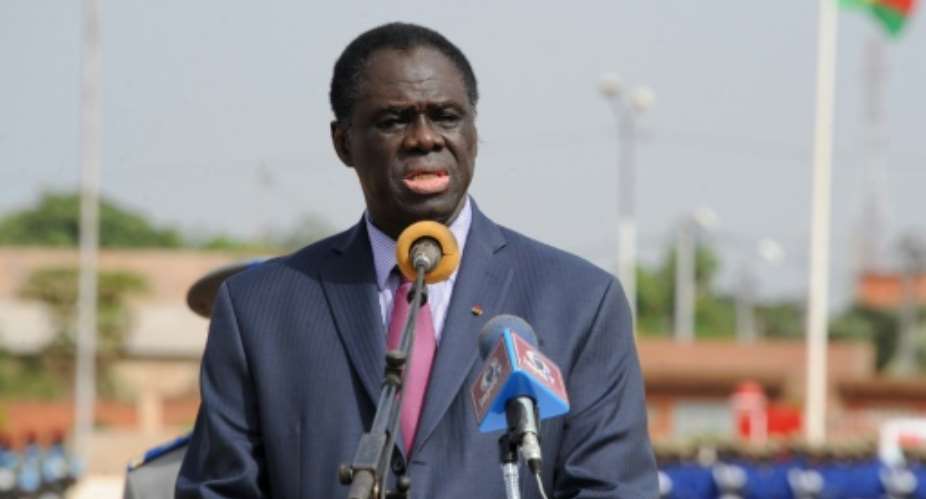Ouagadougou (AFP) - Key dates in the west African state of Burkina Faso, which holds crucial presidential and legislative elections on Sunday, from the fall of ex-president Blaise Compaore:
-- 2014 --
- October 31: After a 27-year rule marked by assassinations and growing public unrest, Compaore steps down and takes refuge in Ivory Coast. Suspicious deaths during his rule include that of Norbert Zongo, a journalist killed in 1998 who was probing a murder that might have had links to Compaore's brother Francois.
- November 1: Lieutenant Colonel Issac Zida, second-in-command of the Presidential Security Regiment (RSP), takes power. Zida promises a transition within a "constitutional framework".
- November 16: The army and civilian groups sign a transition charter.
- November 17: Veteran diplomat Michel Kafando is named interim president to lead the country until elections can be held.
- November 19: Zida is named interim prime minister and retains the post of defence minister when his cabinet is unveiled four days later.
- November 27: Kafando fires General Gilbert Diendere, Compaore's chief-of-staff, and orders a purge of other loyalists from within the army and presidential palace staff.
- December 13: Speaking on the anniversary of Zongo's murder, Zida calls for the RSP to be made part of the regular army and sent to fight terrorism and banditry.
-- 2015 --
- April 10: Kafando signs a controversial law that excludes figures linked to Compaore from running for office.
- July 2: The government says it has foiled a plot by the presidential guard against Zida, after months of rising tensions between the prime minister and the RSP, considered the former leader's right hand men.
- September 17: The RSP declares a coup a day after seizing Kafando, Zida and two ministers. Diendere is to lead a National Council for Democracy. The putsch collapses six days later with its leaders admitting they lack popular support. On September 23 Kafando resumes power.
- October 16: The military says Diendere will be prosecuted on an array of charges, including "crime against humanity" after turning himself in on October 1.
- November 8: Campaigning kicks off ahead of a November 29 national vote.





 Whoever participated in the plunder of the state must be held accountable – Jane...
Whoever participated in the plunder of the state must be held accountable – Jane...
 A vote for John and Jane is a vote to pull Ghana from the precipice of destructi...
A vote for John and Jane is a vote to pull Ghana from the precipice of destructi...
 I’ll repay your abiding confidence with loyalty, understanding and a devotion to...
I’ll repay your abiding confidence with loyalty, understanding and a devotion to...
 ‘I’ve learnt deeply useful lessons for the future' — Serwaa Amihere breaks silen...
‘I’ve learnt deeply useful lessons for the future' — Serwaa Amihere breaks silen...
 I’m sorry for the embarrassment – Serwaa Amihere apologises for leaked sex video
I’m sorry for the embarrassment – Serwaa Amihere apologises for leaked sex video
 Dumsor: Matthew Opoku Prempeh not in charge of Energy sector – Minority
Dumsor: Matthew Opoku Prempeh not in charge of Energy sector – Minority
 Adu Boahen’s murder: Police arrest house help who was in possession of deceased’...
Adu Boahen’s murder: Police arrest house help who was in possession of deceased’...
 Akufo-Addo nominates Felicia Attipoe as Tema West MCE
Akufo-Addo nominates Felicia Attipoe as Tema West MCE
 Election 2024: I can't have someone I defeated twice as my successor – Akufo-Add...
Election 2024: I can't have someone I defeated twice as my successor – Akufo-Add...
